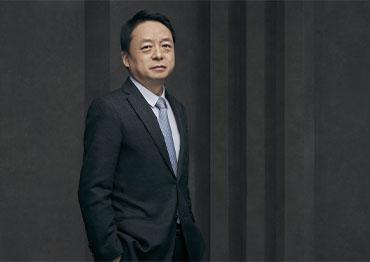After graduating from Peking University in 1988, Ma completed his master’s and PhD at CUPSL before becoming a teacher at the university. His high-quality research led him to a full professorship at 33. He became a frequent advisor at central government policy meetings, where he was outspoken, but not aggressive.
“It’s unnecessary to pander to government agencies, but we should avoid an onslaught of criticism because it will just make matters worse,” he said. “The fundamental task is to solve the problem.”
In recent years, building a government based on the rule of law has been the priority for Ma’s research. His team of researchers devised a system of assessment standards for political achievement, publishing a report on the performance of 53 localities that had legislative authorities in 2014.
The highest possible score was 300, and the average mark the local governments scored was 188.87. Nearly half were below average. Ma’s team has continued to conduct academic assessments of governments based on the rule of law. More than 100 cities were added to the assessment system and 80 percent passed.
Ma’s team has conducted more than 100 government-sponsored policy research projects and proposed many systems that have been adopted nationwide, such as for publicizing administrative law enforcement and documenting the entire law enforcement process.
The central government recently proposed building China into a country based on the rule of law by 2035. “By that time, the public will be expected to respect, study, abide by and apply the law. Government power will be exercised within the cage of regulations. Social equality and justice will be fully implemented,” Ma said.
Shortly after Ma became head of CUPSL, a student took the university to court over a scholarship dispute, and Ma was summonsed to appear. In an amendment to the Administrative Procedure Law, leaders of an institution being sued must appear in court to defend themselves.
It is becoming more common for students to sue universities. Ma represented the plaintiff in the first case in China. In the 1990s, Tian Yong, a sophomore at the University of Science and Technology Beijing, sat an exam with notes that his teacher discovered. The university expelled the student, but Tian was neither notified directly nor did he receive any document to quit school. He continued his studies as usual and defended his thesis before graduation. The university refused to award him his diploma.
Tian’s teacher approached Ma, already a well-known scholar in administrative law, for help. Ma represented Tian in court and won the case against the university.
After becoming head of CUPSL, Ma had to deal with lawsuits from students, but many were trivial. Ma realized there should be an appropriate scope for litigation to avoid wasting judicial resources.
Ma established a compliance platform for the university’s intranet where all teachers and students can talk about their problems. In October 2020, there were 28 complaints on the platform. Ma ordered that all complaints should be addressed and dealt with immediately. If there is no immediate resolution, a detailed explanation must be given.
A teacher at CUPSL told our reporter that law students at the university tend to take everything seriously and that university regulations have to be improved constantly. “Shortcomings may result in disputes and even lawsuits,” he said.
Ma told NewsChina that alongside the rapid development of social media, news can go viral, and the campaign to reduce administrative control has largely dented the authority of universities and teachers.
This campaign aims to put more control over administering universities in the hands of professional educators, rather than skewing toward the Party chief or the university president. At top Chinese universities such as Peking University, the president has the administrative rank of a vice minister, so the reform aims to prioritize education over politics.
While Ma tries to teach students the significance of protecting their legitimate rights through challenging the authority of universities, he believes that students should have a sense of loyalty for their schools. To date, CUPSL has won all the cases students have brought against the school.
Nowadays, Ma is aware that some of the institutional designs he has proposed are perhaps too idealistic and even a bit bold. “Some problems are not as simple as they appear when you think about them from different perspectives,” he said.

 Old Version
Old Version
